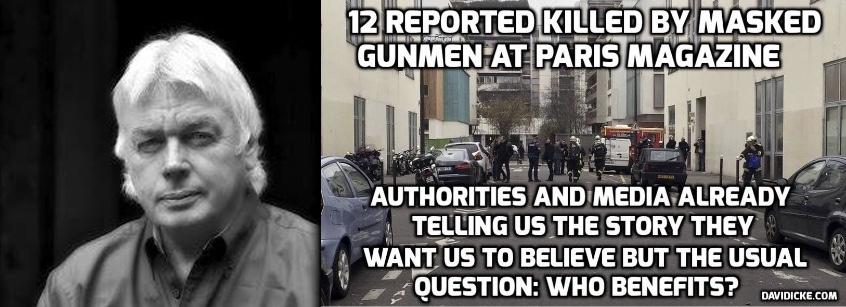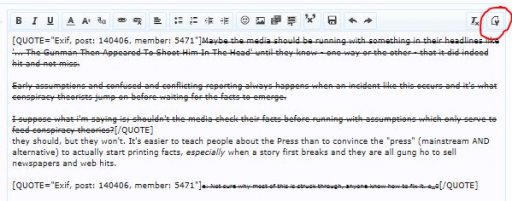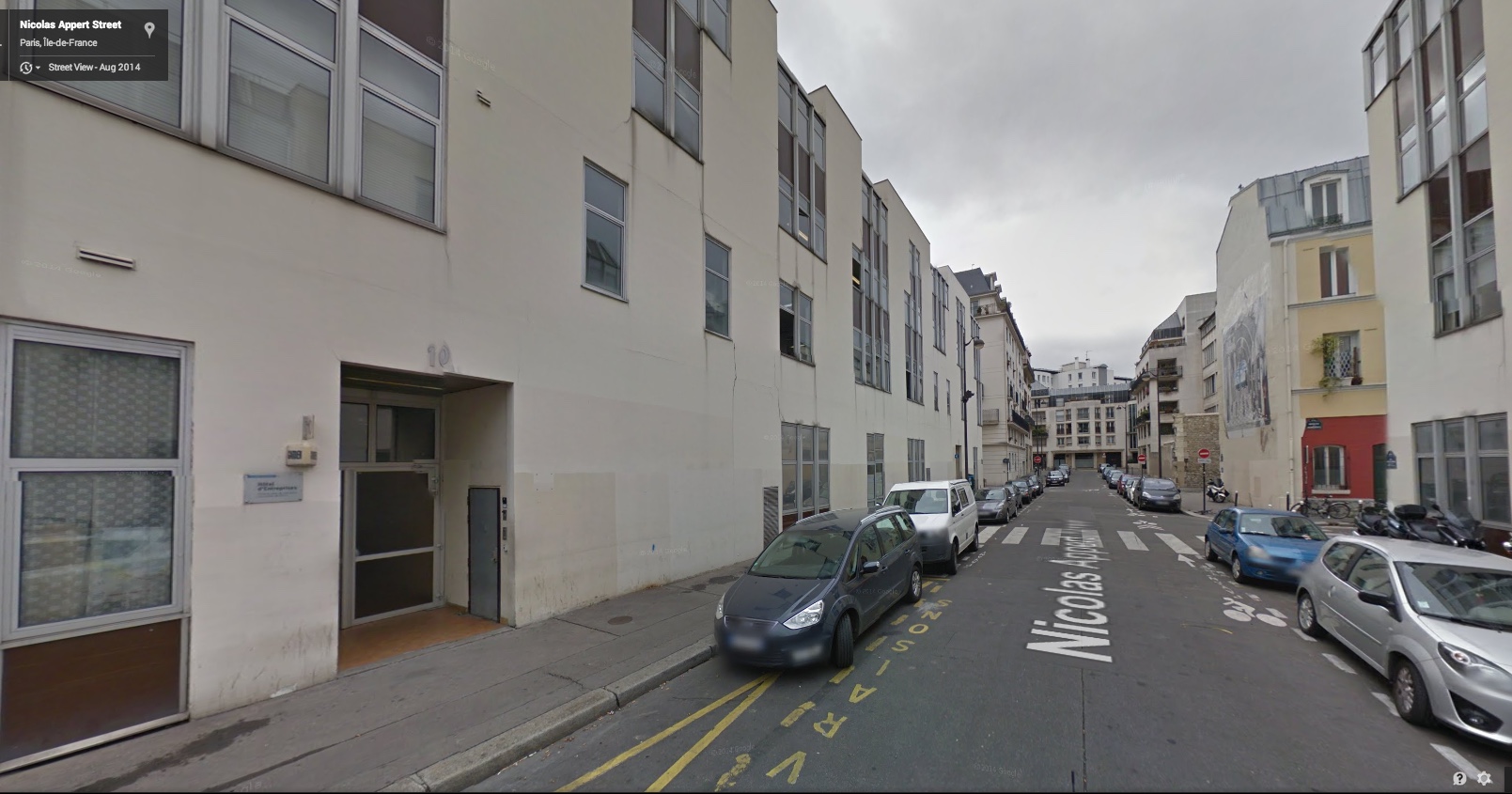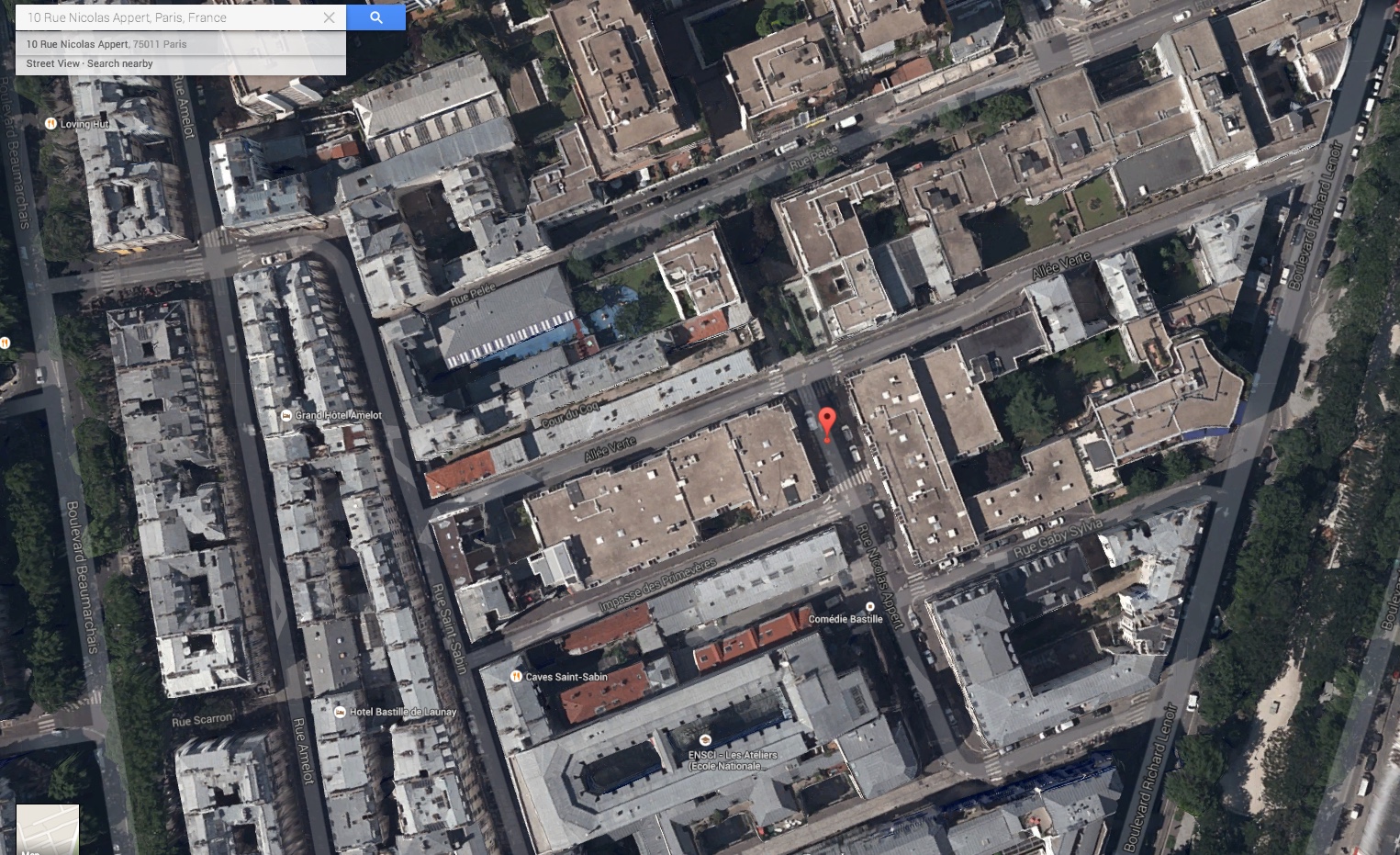The horrific killing of 12 people at the Paris offices of the satirical magazine Charlie Hebdo seems disturbingly straightforward. The magazine has a long history of using satire to critique radical Islam (and many other targets). They have published many cartoons depicting Mohammed, something that has provoked violence before. They had previously been firebombed, and have been the target of threats for many years. Several of those killed were named as being "wanted, dead or alive" by al Qaeda's Inspire magazine (alongside Salman Rushdie). Witnesses to the shooting say the gunmen shouted they were "avenging the honor the prophet".
And yet there is a small but vocal subset of people who consider nearly every major story in the mainstream media to be fake in some way. Every time there is an attack of some kind, a shooting, a bombing, even the events of 9/11, they claim that the story has been manipulated, or that the shootings were not done by who the media says did it, or even that the event was entirely staged, with fake blood and "crisis actors" who play out the roles of shooters and victims in carefully choreographed pretend carnage. This has already started to happened with the Charlie Hebdo shootings, and with an event of such significance and potential for incitement, it is guaranteed to continue and escalate, and become part of the canon of purported "false flag" events. David Icke was quick to chime in.

Over and over the theorists will come up with claims of things they think were suspicious about these events. In the Sandy Hook school schoolings, banal things like the lack of video, or the small stature of the shooter, or the facial expressions of the parents of the victims were offered as "proof" that the shootings never happened. After the Boston Marathon bombings armchair experts opined that there was too much blood, or not enough blood, or the blood was too red, or that people reacted in unexpected ways to having their legs blown off, thus proving that the events were just a charade.
These claims, of course, are specious. Just shoehorned cherry-picked confirmation bias by people who have already decided that everything is fake, and so everything they see is evidence of that fakery. Many of their claims have been examined at length, here and on many other sites, and have been shown to be either straightforward bunk (errors and lies), or meaningless subjective speculation and interpretations.
They hide under the excuse of "I'm just asking questions", and claim they are performing a legitimate role of fact-checking the mainstream media - something, they say, which you could not possibly object to. This excuse has the ring of truth about it, as fact-checking is indeed an honorable pursuit and errors in the media should be exposed and corrected. But that's not what they are doing.
They are finding ordinary and expected inconsistencies in the reporting of chaotic events. They are offering their own subjective interpretations of events as alternative evidence. They latch on to the most trivial of coincidences (with their mantra of "there are no coincidences") as evidence of a conspiracy. Two women with the same haircut is evidence that they are the same woman, and hence an actor, and hence everything is fake. It's self-reinforcing confirmation bias taken to an extreme. It does not seem worthy of response.
And yet here on Metabunk we've taken them on, and debunked many of their claims. We have occasionally been criticized for doing this, as the claims are so outlandish, denying that people died, that they are deeply offensive to the relatives of the victims. This was particularly the case for Sandy Hook, where the conspiracy theorists have gone as far as harassing the parents of the children who were murdered. Should we even acknowledge these people? In debunking them are we actually giving them more attention than they would get if we just ignored them?
It's hard to draw the line. Some things are clearly way over it - suggestions than no planes hit the World Trade Center, or that what people saw were giant holograms, or that Sandy Hook School had actually been closed for years. Indeed you might think that the entire notion of events like Sandy Hook being fake, or the Boston Marathon Bombings being fake, is over the line - obviously ludicrous and offensive.
And yet some people believe it.
Now we are obviously not going to change the minds of the David Ickes or James Tracys of the world. These are people who's very identity, their entire reason for the way they live their lives, is tied up in their beliefs of a fake media and all major events being fake.
Nor are we going to change the minds of the "true believer", the conspiracy theorist who has been thinking like this for decades, the type of person for whom evidence that should contradict his beliefs will bizarrely reinforce them. Where pointing out the errors in their evidence is simply more evidence that they are correct. They do come around, but very rarely.
But then there are vastly more people on the fringes of conspiracy theory than there are deeply buried inside it. In particular there are many young people - people who are very impressionable, with flexible minds that soak up new ideas quickly, but who are also able to drop those ideas when they are shown they are incorrect. It is this group that is the target audience for the majority of the debunking on Metabunk.
Conspiracy thinking, conspiracy ideation, is a black hole, a dark rabbit hole that once you get deep enough into, it is very hard to escape from. When I debunk I hope I'm preventing people from falling into that hole, or if they are already in it I hope to keep them close enough to the light so they will eventually climb out themselves.
And that's why I address ludicrous and offensive theories like the Sandy Hook shootings being fake. It's not in the hope of changing the minds of the people who come up with the ridiculous claims of evidence - they are generally deep down the rabbit hole. It's to help people out who are not in too deep, and to help people not fall into in the first place - particularly the young.
And so yes, I think we should address the inevitable Charlie Hebdo conspiracy theories. But only if it seems like they have some traction, if they might actually be influencing people. We don't need to respond to every single labored YouTube video of "why was this person stood there" type thing - especially if nobody is watching those videos. But if people are being taken in by claims, if their young or overly-open minds are being darkened by bunk, then I think debunking has a place here.
And yet there is a small but vocal subset of people who consider nearly every major story in the mainstream media to be fake in some way. Every time there is an attack of some kind, a shooting, a bombing, even the events of 9/11, they claim that the story has been manipulated, or that the shootings were not done by who the media says did it, or even that the event was entirely staged, with fake blood and "crisis actors" who play out the roles of shooters and victims in carefully choreographed pretend carnage. This has already started to happened with the Charlie Hebdo shootings, and with an event of such significance and potential for incitement, it is guaranteed to continue and escalate, and become part of the canon of purported "false flag" events. David Icke was quick to chime in.

Over and over the theorists will come up with claims of things they think were suspicious about these events. In the Sandy Hook school schoolings, banal things like the lack of video, or the small stature of the shooter, or the facial expressions of the parents of the victims were offered as "proof" that the shootings never happened. After the Boston Marathon bombings armchair experts opined that there was too much blood, or not enough blood, or the blood was too red, or that people reacted in unexpected ways to having their legs blown off, thus proving that the events were just a charade.
These claims, of course, are specious. Just shoehorned cherry-picked confirmation bias by people who have already decided that everything is fake, and so everything they see is evidence of that fakery. Many of their claims have been examined at length, here and on many other sites, and have been shown to be either straightforward bunk (errors and lies), or meaningless subjective speculation and interpretations.
They hide under the excuse of "I'm just asking questions", and claim they are performing a legitimate role of fact-checking the mainstream media - something, they say, which you could not possibly object to. This excuse has the ring of truth about it, as fact-checking is indeed an honorable pursuit and errors in the media should be exposed and corrected. But that's not what they are doing.
They are finding ordinary and expected inconsistencies in the reporting of chaotic events. They are offering their own subjective interpretations of events as alternative evidence. They latch on to the most trivial of coincidences (with their mantra of "there are no coincidences") as evidence of a conspiracy. Two women with the same haircut is evidence that they are the same woman, and hence an actor, and hence everything is fake. It's self-reinforcing confirmation bias taken to an extreme. It does not seem worthy of response.
And yet here on Metabunk we've taken them on, and debunked many of their claims. We have occasionally been criticized for doing this, as the claims are so outlandish, denying that people died, that they are deeply offensive to the relatives of the victims. This was particularly the case for Sandy Hook, where the conspiracy theorists have gone as far as harassing the parents of the children who were murdered. Should we even acknowledge these people? In debunking them are we actually giving them more attention than they would get if we just ignored them?
It's hard to draw the line. Some things are clearly way over it - suggestions than no planes hit the World Trade Center, or that what people saw were giant holograms, or that Sandy Hook School had actually been closed for years. Indeed you might think that the entire notion of events like Sandy Hook being fake, or the Boston Marathon Bombings being fake, is over the line - obviously ludicrous and offensive.
And yet some people believe it.
Now we are obviously not going to change the minds of the David Ickes or James Tracys of the world. These are people who's very identity, their entire reason for the way they live their lives, is tied up in their beliefs of a fake media and all major events being fake.
Nor are we going to change the minds of the "true believer", the conspiracy theorist who has been thinking like this for decades, the type of person for whom evidence that should contradict his beliefs will bizarrely reinforce them. Where pointing out the errors in their evidence is simply more evidence that they are correct. They do come around, but very rarely.
But then there are vastly more people on the fringes of conspiracy theory than there are deeply buried inside it. In particular there are many young people - people who are very impressionable, with flexible minds that soak up new ideas quickly, but who are also able to drop those ideas when they are shown they are incorrect. It is this group that is the target audience for the majority of the debunking on Metabunk.
Conspiracy thinking, conspiracy ideation, is a black hole, a dark rabbit hole that once you get deep enough into, it is very hard to escape from. When I debunk I hope I'm preventing people from falling into that hole, or if they are already in it I hope to keep them close enough to the light so they will eventually climb out themselves.
And that's why I address ludicrous and offensive theories like the Sandy Hook shootings being fake. It's not in the hope of changing the minds of the people who come up with the ridiculous claims of evidence - they are generally deep down the rabbit hole. It's to help people out who are not in too deep, and to help people not fall into in the first place - particularly the young.
And so yes, I think we should address the inevitable Charlie Hebdo conspiracy theories. But only if it seems like they have some traction, if they might actually be influencing people. We don't need to respond to every single labored YouTube video of "why was this person stood there" type thing - especially if nobody is watching those videos. But if people are being taken in by claims, if their young or overly-open minds are being darkened by bunk, then I think debunking has a place here.



